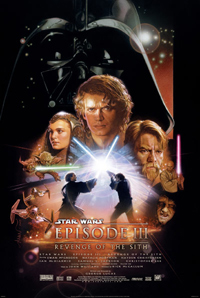Many people have asked me, as a marketing guy with some knowledge and involvement in the entertainment industry, to explain the Star Wars phenomenon. How is it, they ask, that neither a weak story, poor acting, terrible direction, gigantic plot holes, nor the dearth (or would it be “Darth”) of likable characters seem to matter in the least?
For those who have not been touched by the inner workings of “the industry,” it is well to note that this question is asked in the context of most industry wannabees harboring a ticket punch mentality. That is, if you do all the right things, and pay your dues long enough, then you too will achieve success. Or, put in a different way, if you have not yet succeeded, you must therefore take more acting classes, work on more non-paying indie films, and do more non-paying showcases (that still charge you to be in them). Add to this some very rigid notions of what constitutes an acceptable screenplay, and you can appreciate how the apparent contrarian history of Star Wars throws many at the bottom of the industry food chain into serious turmoil.
The easiest explanation, or non-explanation, if you will, would be to quote screenwriter William Goldman, who observed, in this matter, that “Nobody knows anything.” Goldman was at least wise enough to realize that when one deals with human emotions, cocksure elucidations of box office success, or the predictions thereof are of little value. At best, such analyses are like the jumbled writings of Nostradamus, whereby events are claimed to be accurately predicted AFTER they occur.
Still, some observations can be proffered…
Given the success of the series’ first entry in 1977, it was natural that sequels would follow. The big advantages of a sequel are the familiarity quotient and bandwagon effect. Within reason, most moviegoers would be interested in the further adventures of the characters of any popular film. The bandwagon takes hold in that most people want to be part of the winning team, or, at least want to appear cool, knowing about the latest pop culture trend.
Lucas further exploited the bandwagon effect by targeting kids interested in all the Star Wars paraphernalia, as well as the uber sci-fi nerds who glory in the obscure details of the dozens of alien groups, weapons, and characters mentioned only fleetingly. Beyond the extra dollars gained in selling the promo merchandise and quickly published reference books, a huge buzz was generated with all the “underground” discussion, websites, and clubs.
At the heart of the bandwagon effect is the primal need that people have to belong—to something, anything. By way of example, there is simply no other rationale for the continuing popularity of professional sports, and the identification by fans with a particular franchise, especially these days when teams and players cannot even be expected to remain in a city. Indeed, the cynical question is raised, “Are peoples’ lives so empty that they have to invest themselves so greatly in such as sports teams, the lives of celebrities, the plot machinations of TV series, or who might win on American Idol?” The sad answer is “Yes.”
It is worth noting that the huge box office of Titanic (1997) derived from the familiarity of the story, the anticipation of special effects, the masterful score, but, most importantly, in the casting of the leads. It was no accident that the male lead (Leonardo DiCaprio) was far prettier than the female lead (Kate Winslet). In this way, every plain Jane could identify with Winslet’s Rose character, and the ultimate “love is a tragedy” fantasy could be viewed repeatedly by this demographic. Many women went to this film more than ten times, assuring stratospheric box office.
Yet, in the entire Star Wars series, there is not a single casting decision that was made to pull in any audience group. This is truly amazing, and bespeaks George Lucas’ disconnection with normal film philosophy.
In sum, then, the actors don’t matter, the script doesn’t matter, and the direction doesn’t matter. That leaves us with the special effects and the John Williams score. Did Lucas come upon the ultimate pop movie ingredients?
How many recent films, including direct-to-video flicks, can be boiled down to exciting music and lots of FX-driven action? If you answered “most,” go the the head of the class.
 Rip-roaring action, mixed in with terrible dialogue, illogical character development, mostly weak acting, a few silly Leftie precepts, and points to ponder about The Force mark this final entry in the Star Wars saga.
Rip-roaring action, mixed in with terrible dialogue, illogical character development, mostly weak acting, a few silly Leftie precepts, and points to ponder about The Force mark this final entry in the Star Wars saga.